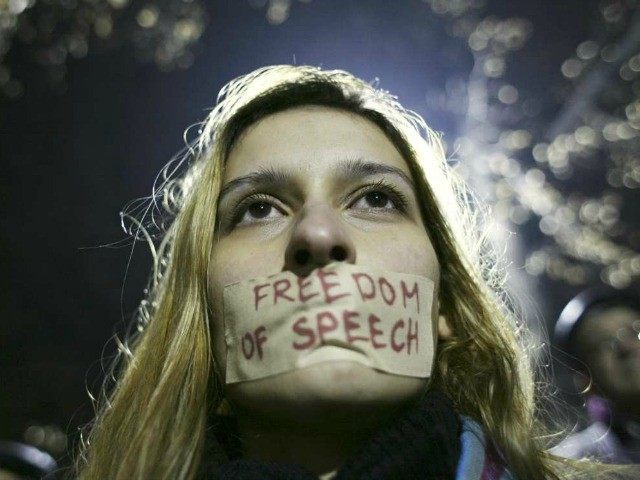Last April, the Brandeis University student paper The Justice covered an anti-rape march known as “Take Back the Night,” an ongoing even that has taken place at Brandeis since 2005. Unfortunately for the writing team at the paper, they didn’t know that they were stepping into a minefield.
Shortly after the piece was published, comments came into the story claiming that by anonymously quoting survivors of sexual assault, the writers were only further abusing those victims. Abby Patkin, a news editor who covered the march, told The College Fix that they “heard from several critics… that [they] were taking away the survivors autonomy over their stories, that they weren’t [theirs] to tell.”
Other criticisms placed on the reporters were that the march was a “safe space,” and by covering it, the journalists violated that concept. Thankfully, other commenters highlighted that the event was in a public space and that the paper was well within their rights under the First Amendment to cover said story. Editor-in-Chief Max Moran said that the non-identifying quotes were published “because at its heart, Take Back the Night is about survivors sharing these experiences, and in our view, any coverage that does not address that is fundamentally failing to capture what the event is about.”
The attacks on the paper only escalated. Four months later in August 2015, a law firm which allegedly represented two students at the event sent The Justice a letter, demanding that the article be taken down from their site and the paper issue an apology, under the threat of legal action. The shaky grounds on which this claim was staked is that the paper allegedly violated Massachusetts law by recording the audio of the event, as it was in a public location, even though the audio was immediately deleted after the reporter had finished transcribing it. Thankfully for The Justice, the paper never heard from the lawyers after that first letter.
Brandeis finally weighed in on the controversy this February – 10 months after the initial event. Avi Gold, the managing editor at the paper, received a letter alleging that he violated the “Electronic Devices and Privacy” policy of the university. This vaguely-worded policy bans students from “using electronic devices in any manner that invades or causes disruption to another individual’s privacy in a classroom, library or other campus facility or at any campus event.” As is the norm with bureaucratic university by-laws, it failed to define either “invades” or “disruption,” nor did it mention whether public campus events were exempt.
At this point, the Foundation for Individual Rights in Education (FIRE) decided to intervene. FIRE’s March 23rd letter to interim President Lisa Lynch highlighted that the school was incorrect in saying that Patkin’s recording violated state law, as her phone was “in plain view” whilst recording and in no way could be described as “secret,” the key point needed to contravene the legislation. FIRE threatened to “use all of the resources at our disposal to see this matter through to a just conclusion.”
Only 5 days later, Gold received a letter from Kerry Guerard, director of student rights and community standards at Brandeis, declaring that the investigation was ending, and that the university would review its recording policy and “consider revisions” of the code.
At the end of this, it seems that the real victims of this attempted censorship were those survivors themselves. In the “Take Back the Night” event held last week, no survivor came forward to share their stories, prompting organizers to share generic stories from the national website and discuss statistics on sexual assault.
Jack Hadfield is a student at Warwick Univeristy and a regular contributor to Breitbart Tech. You can follow him on Twitter here: @ToryBastard_.

COMMENTS
Please let us know if you're having issues with commenting.